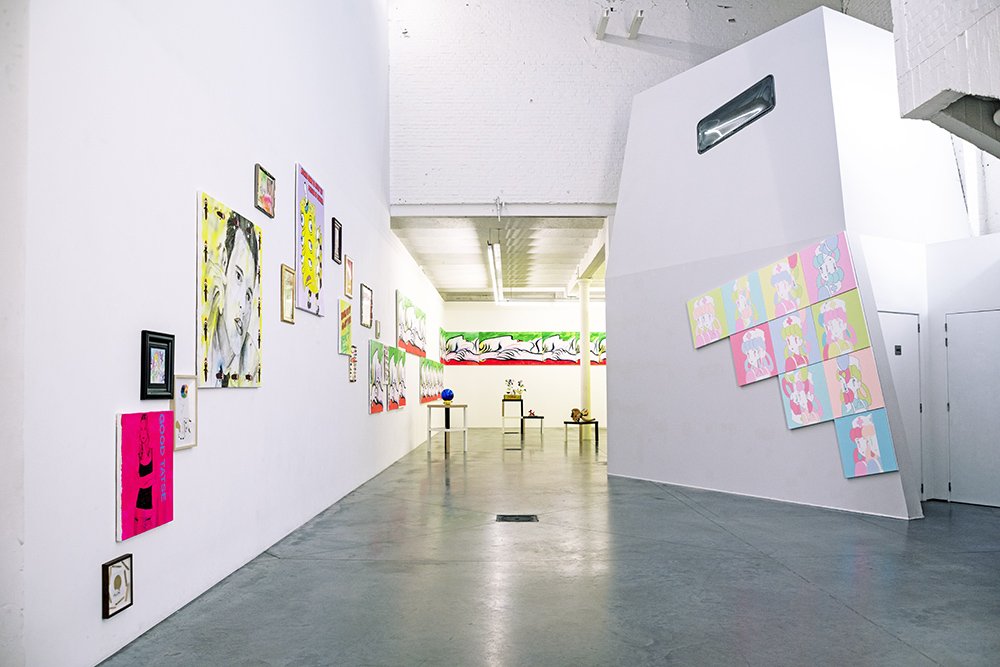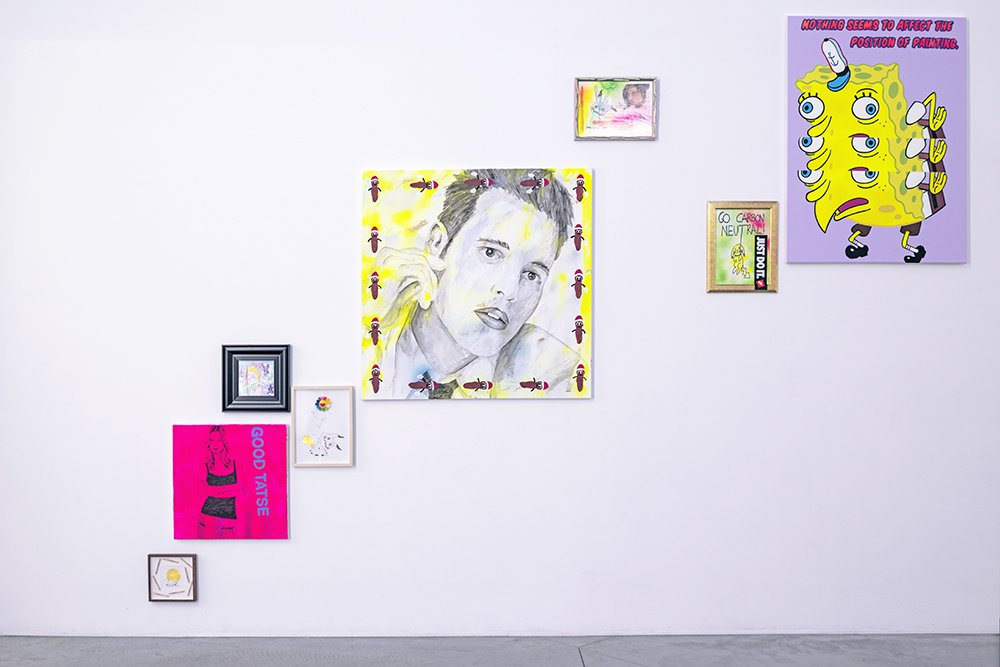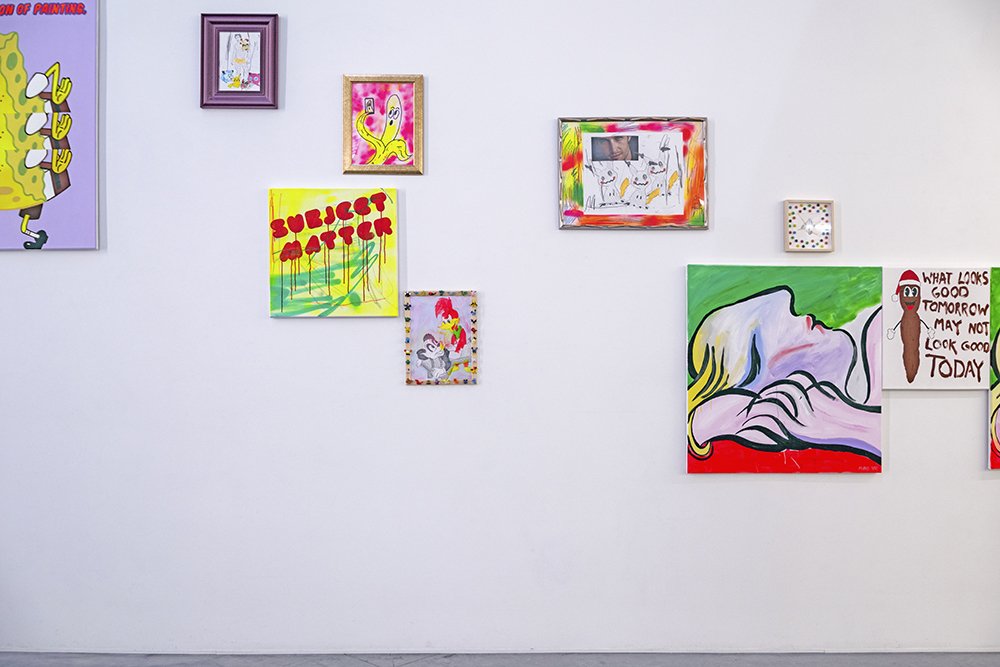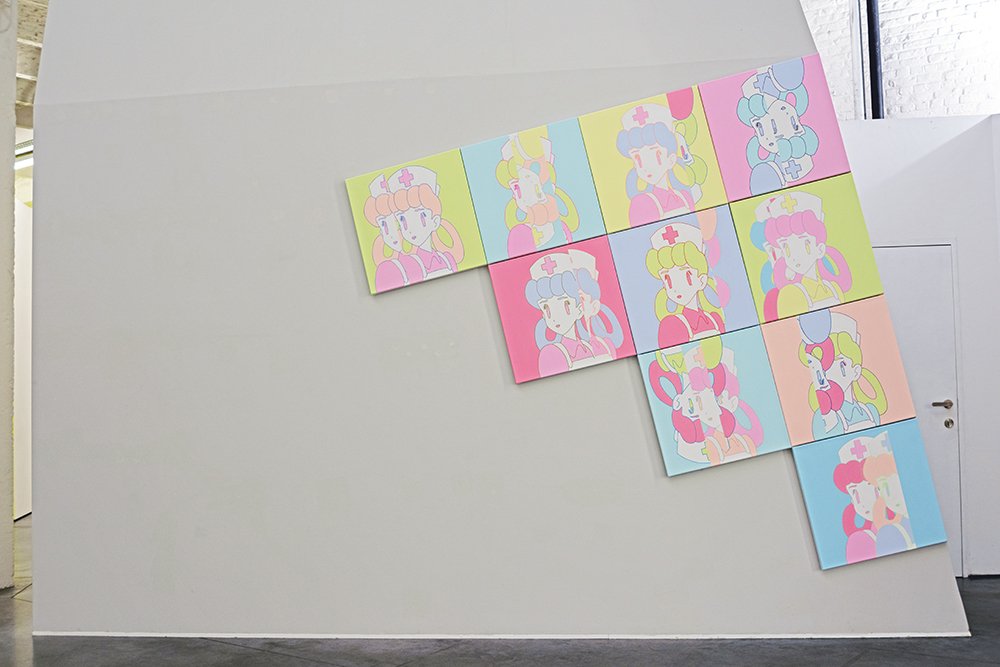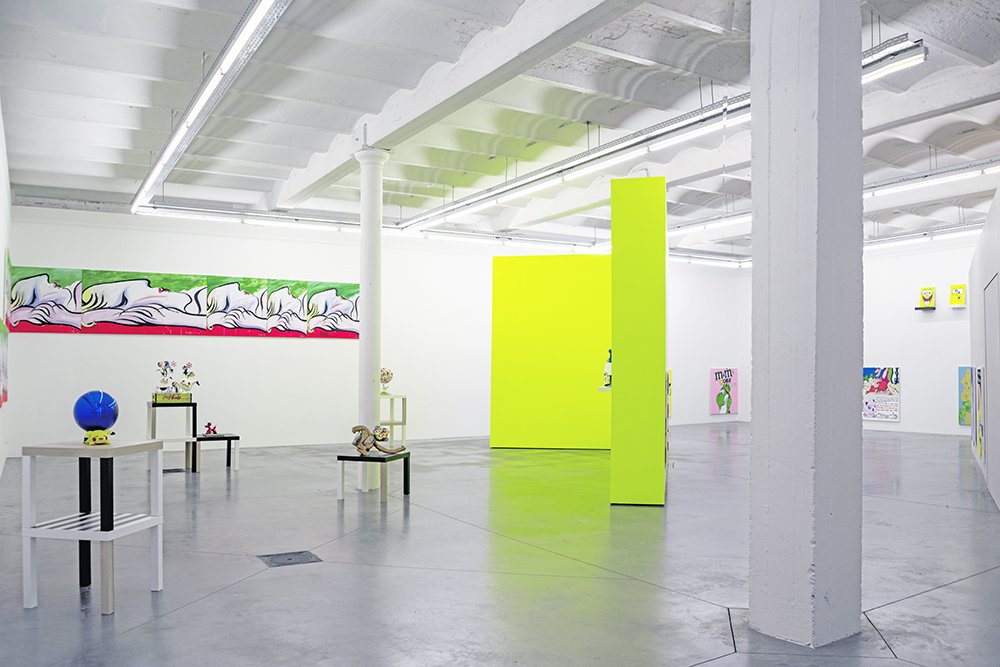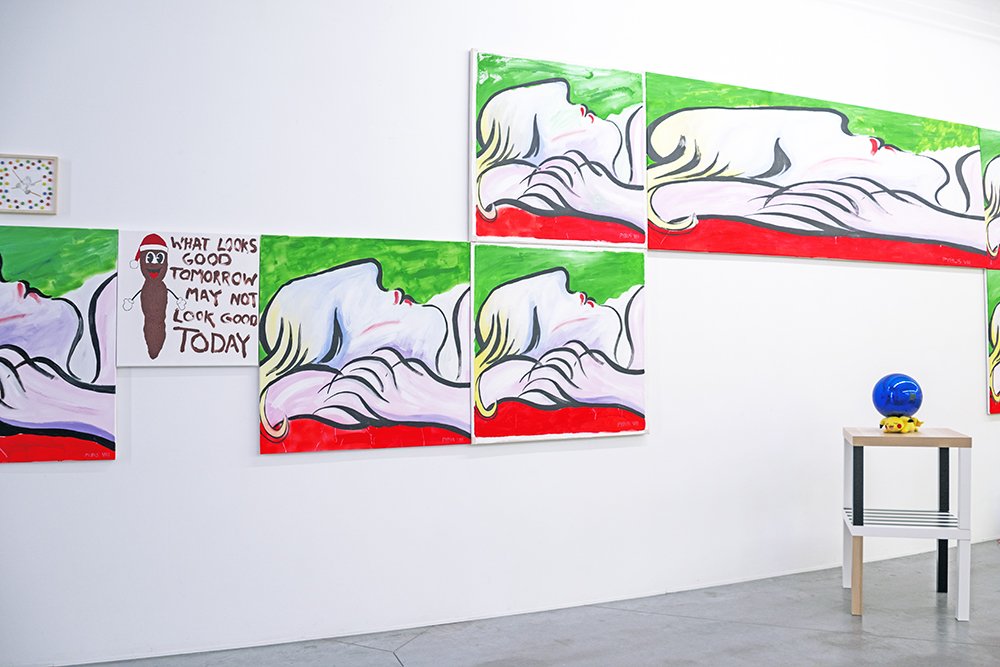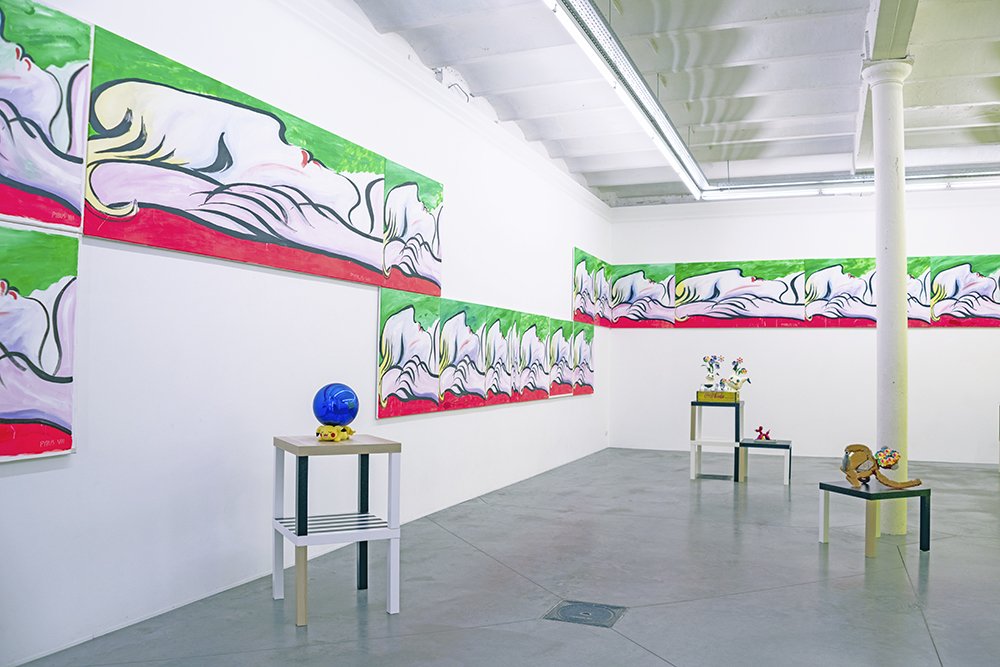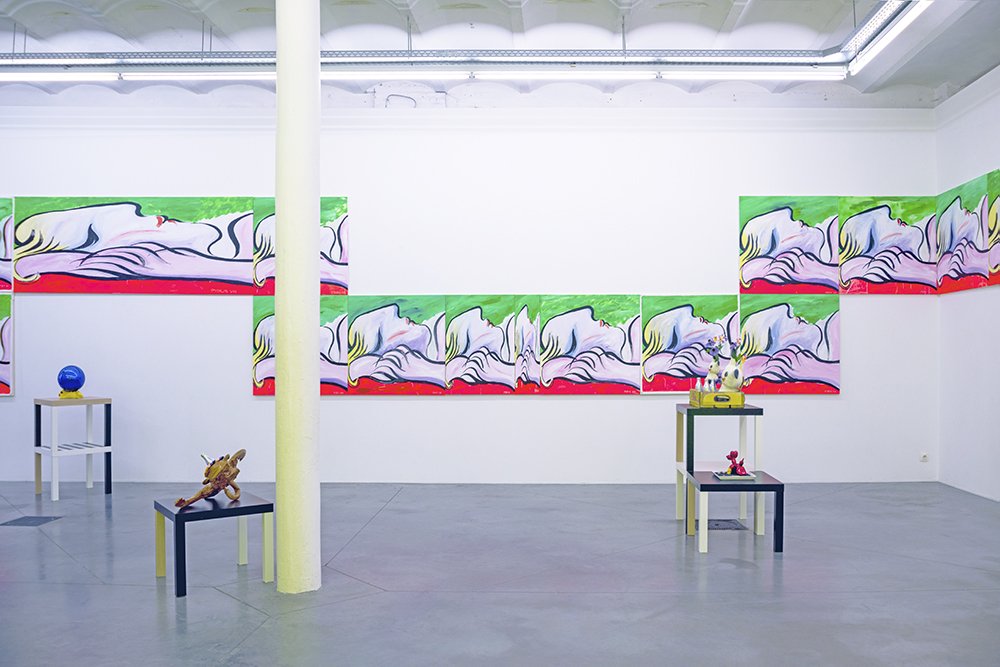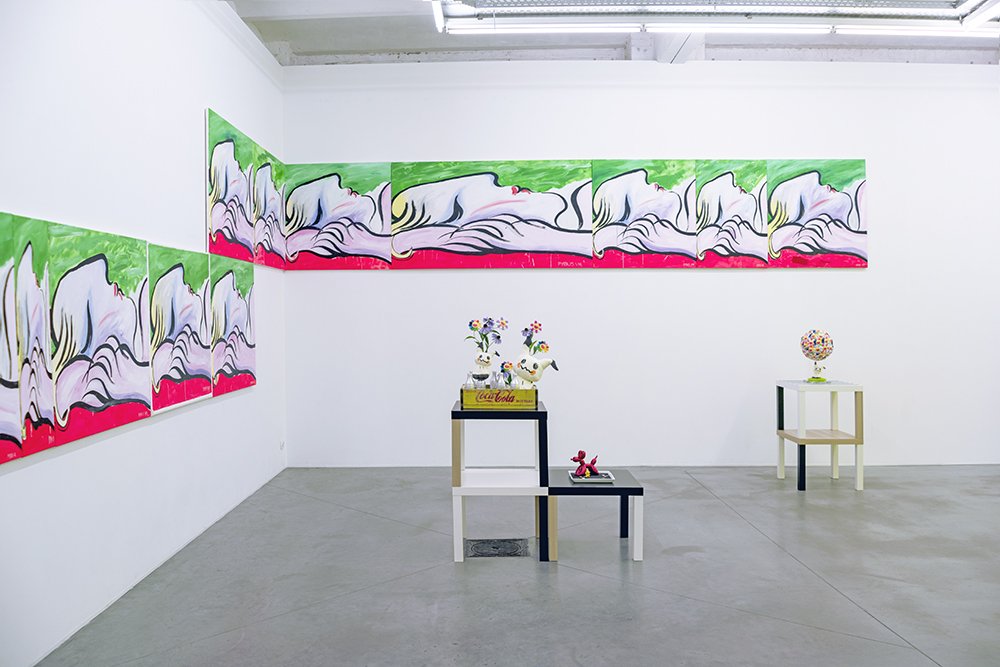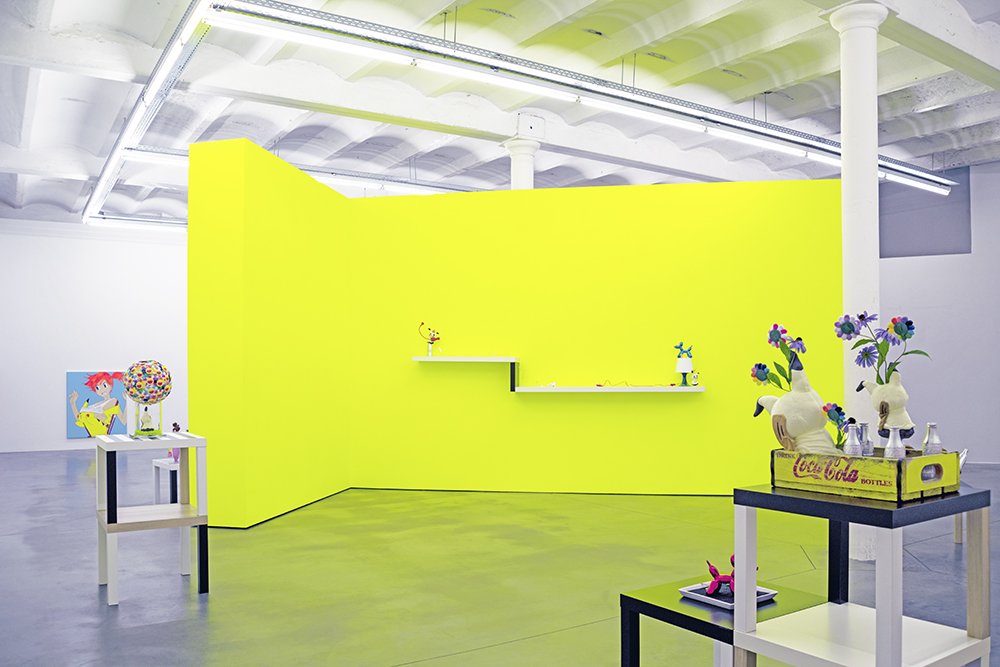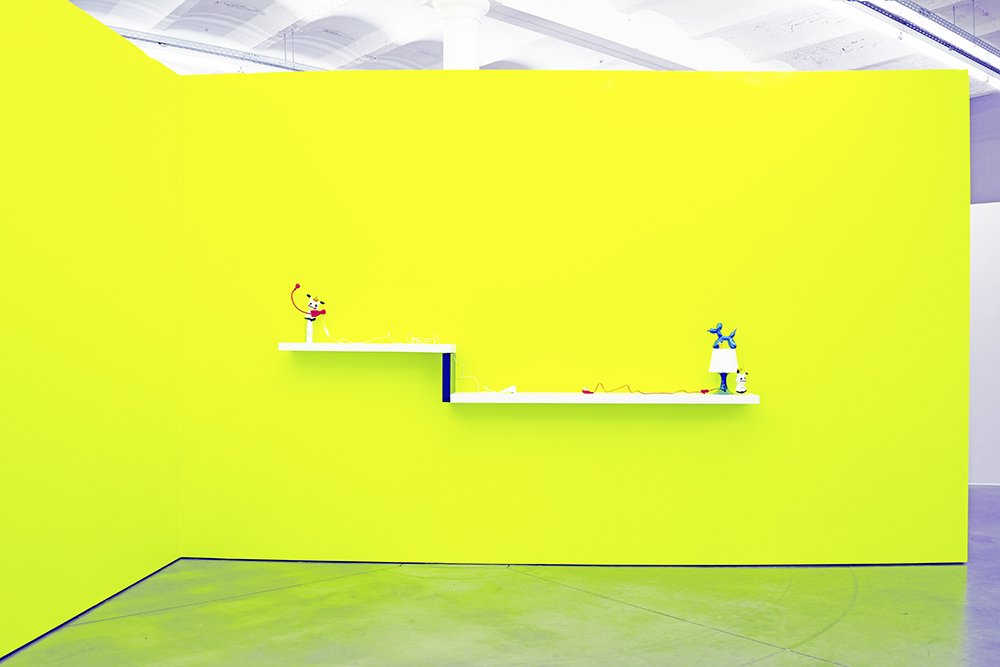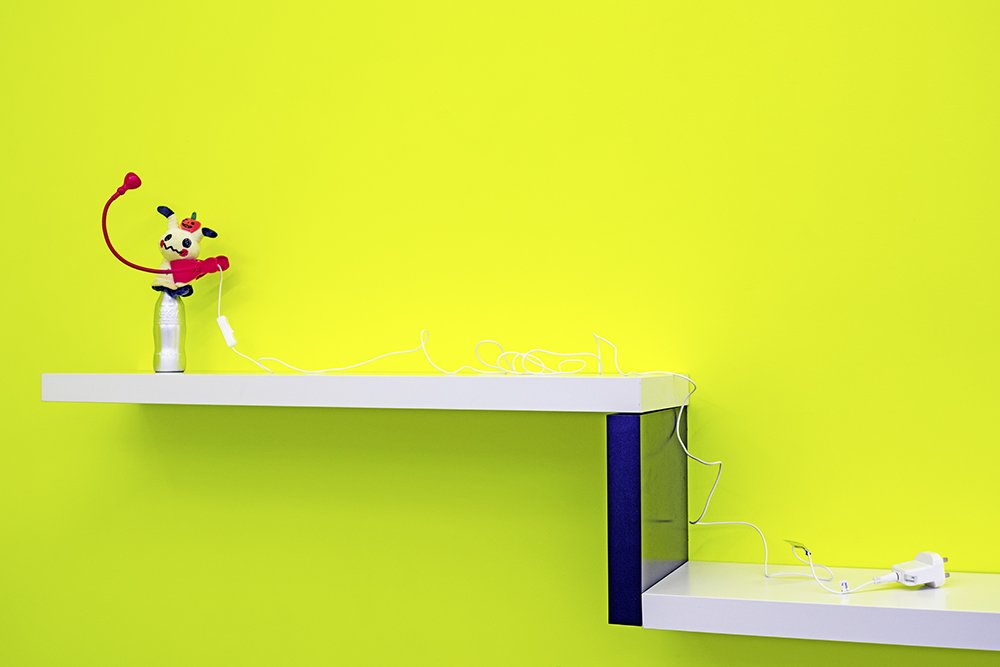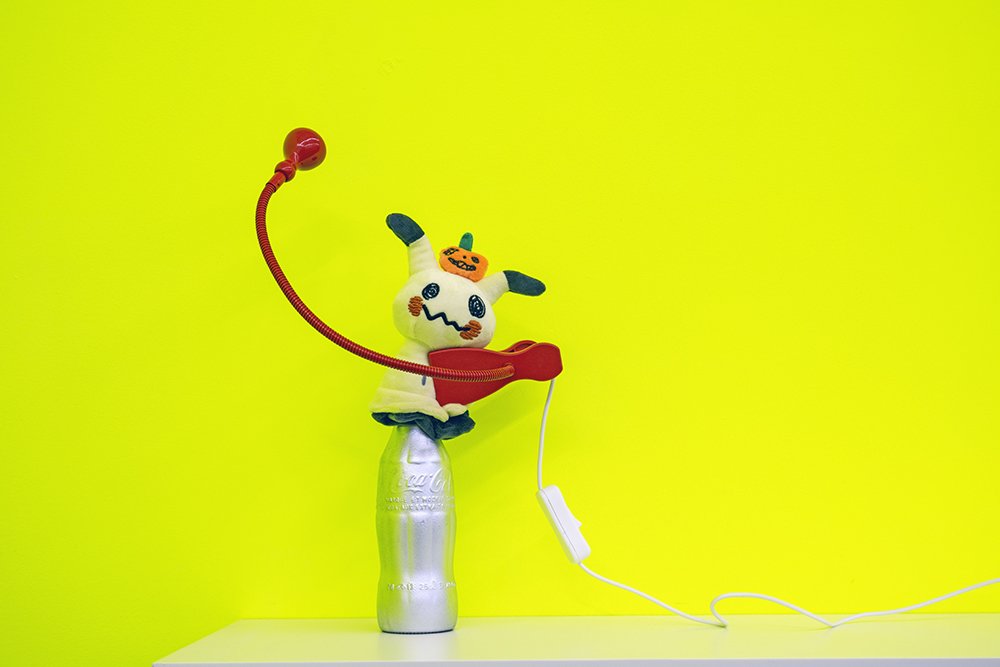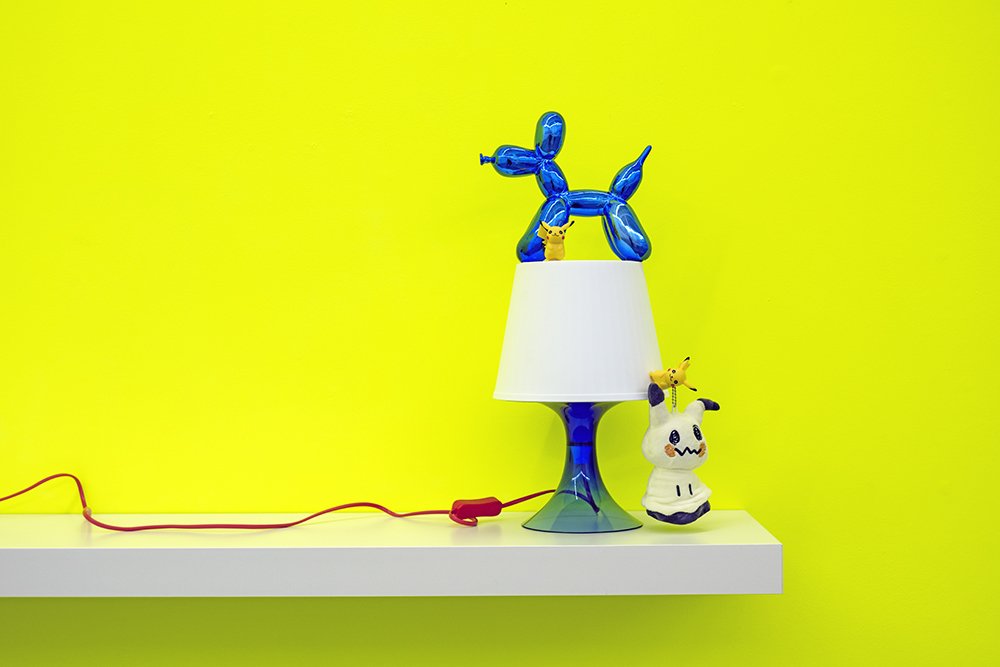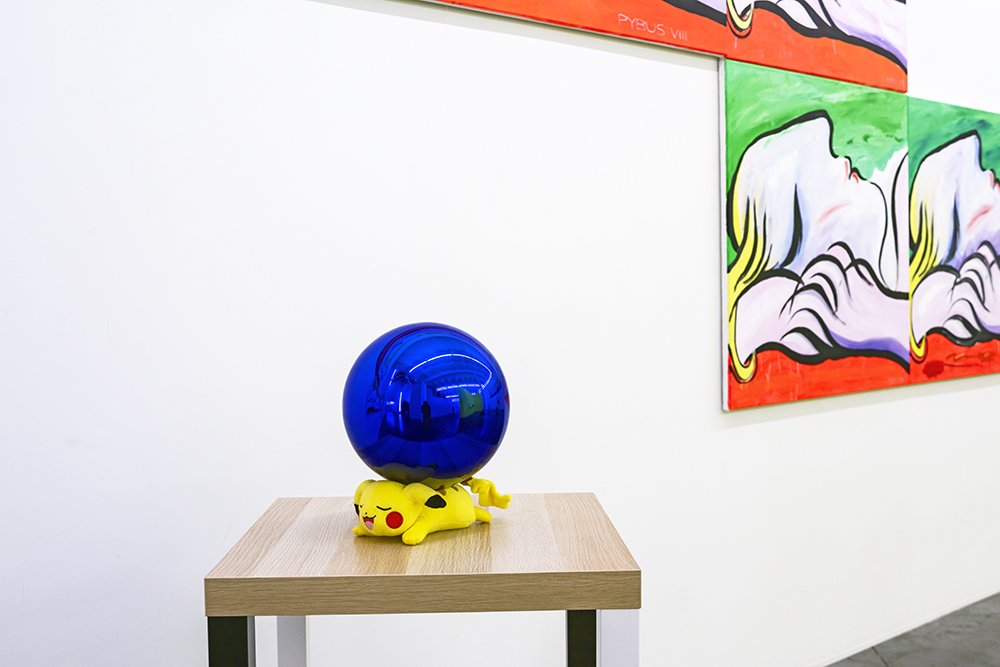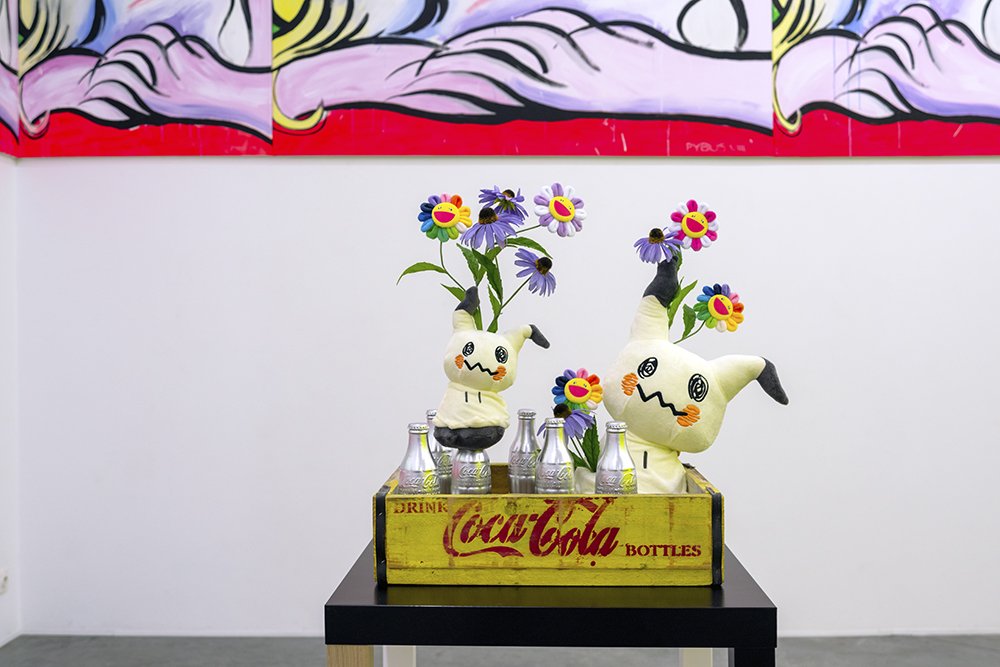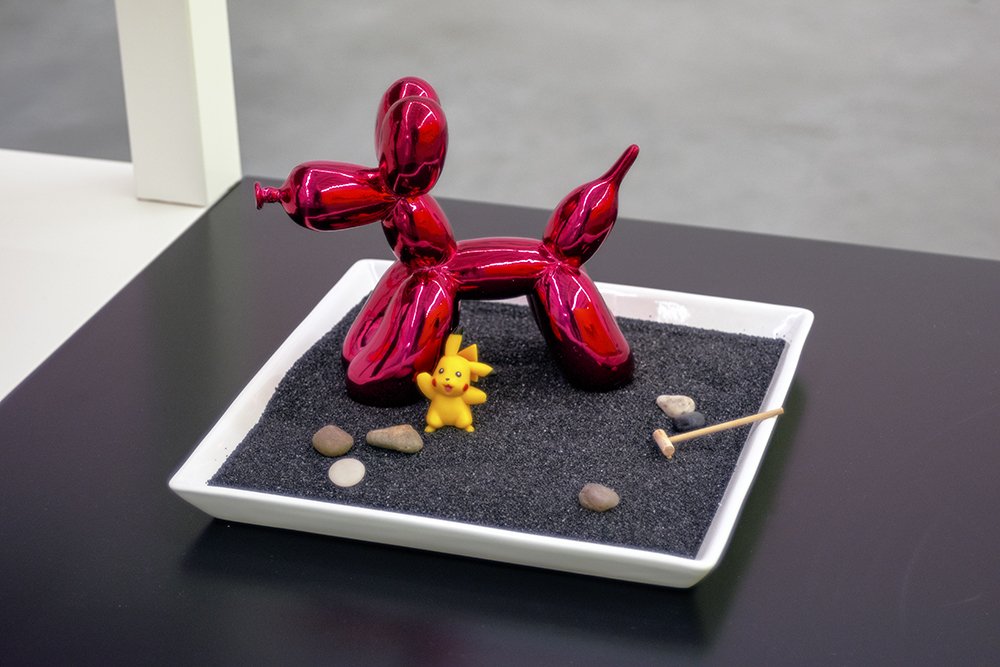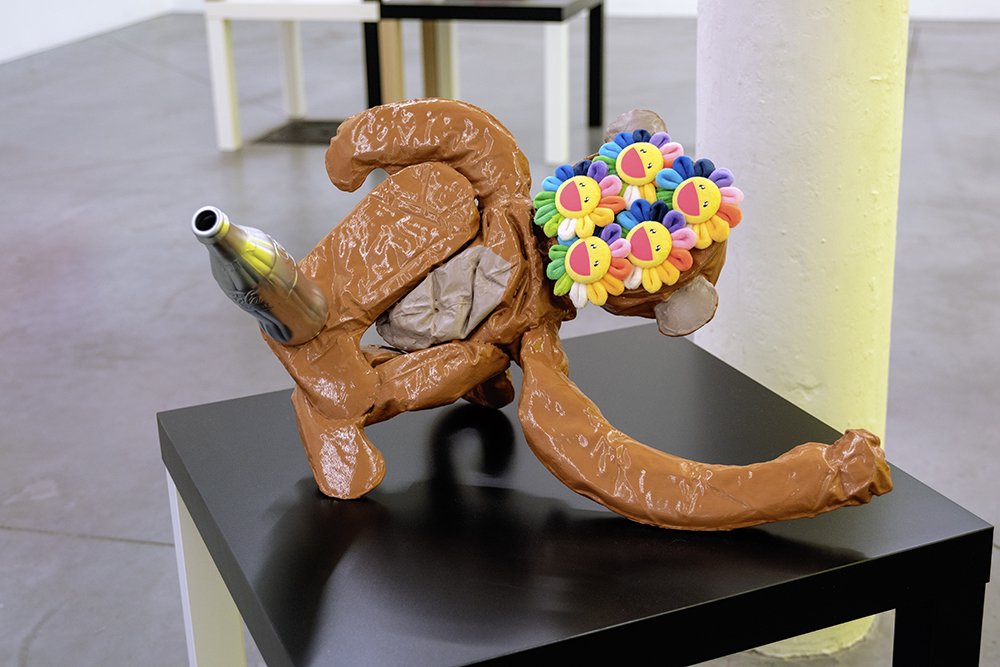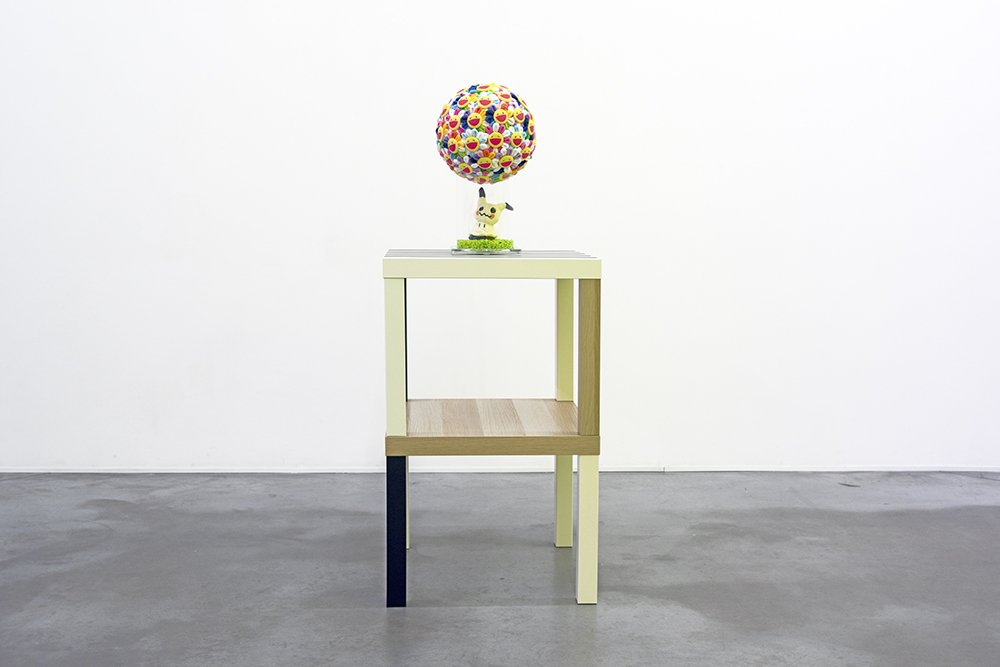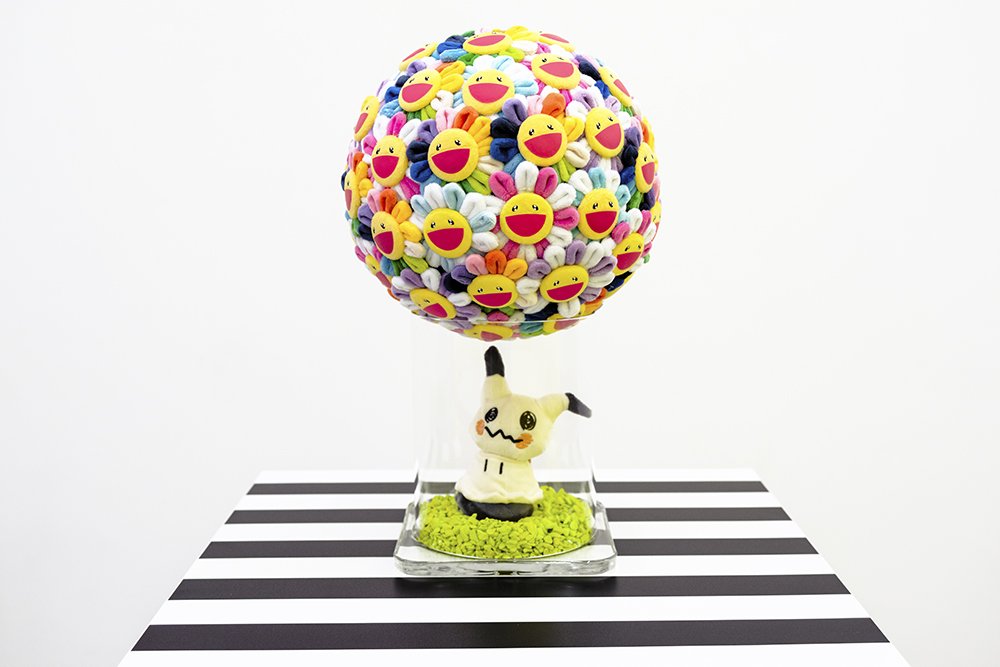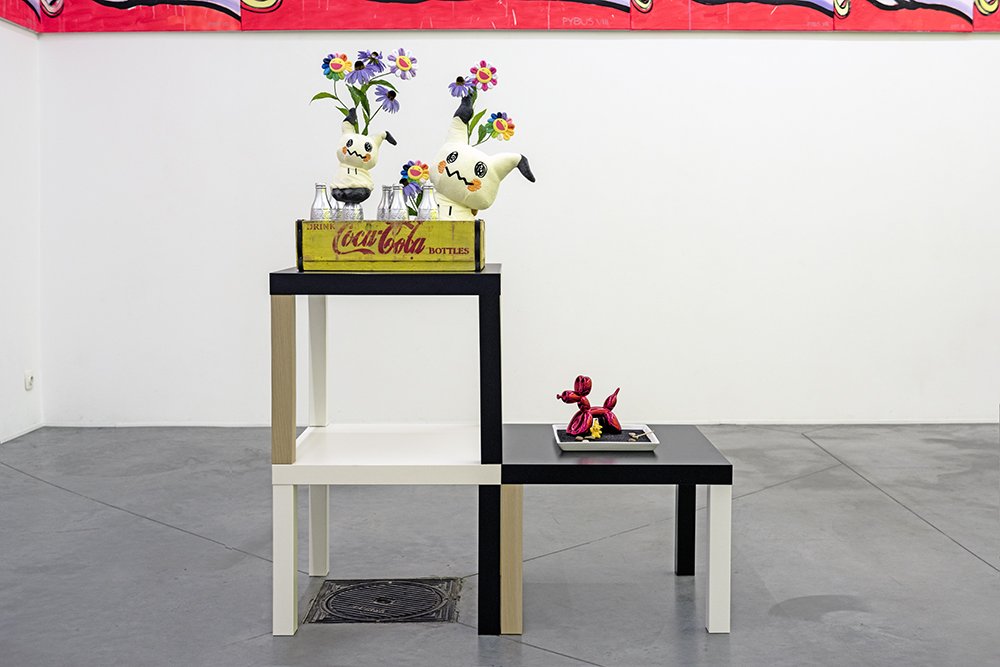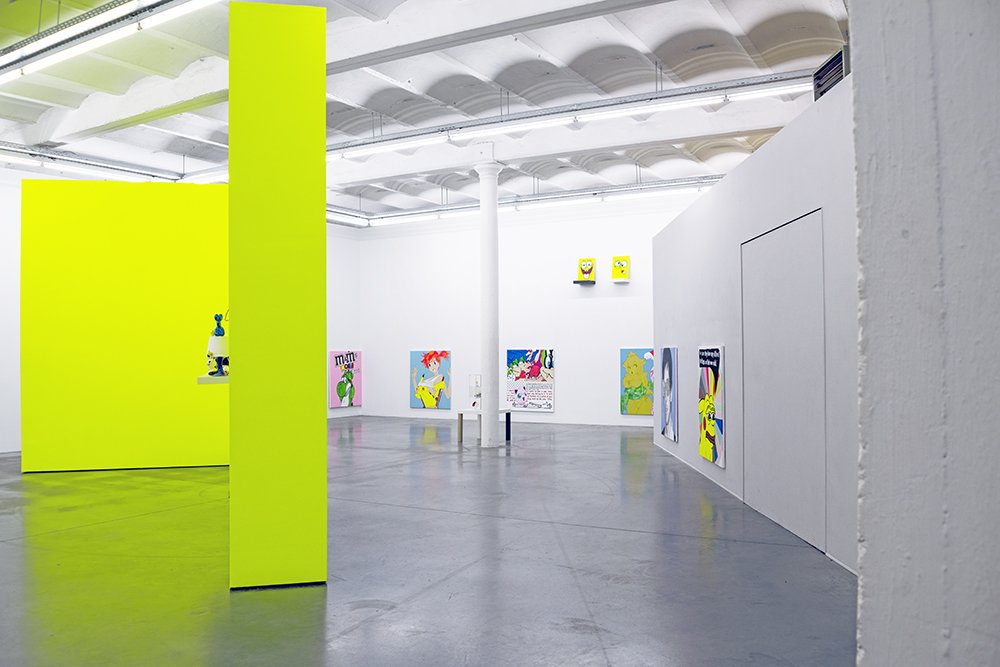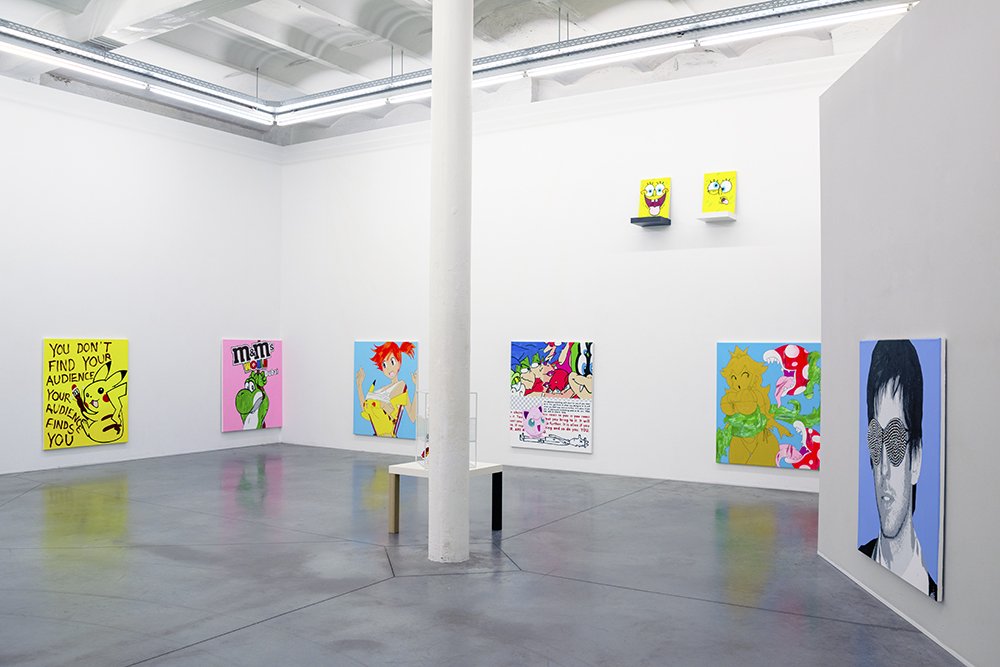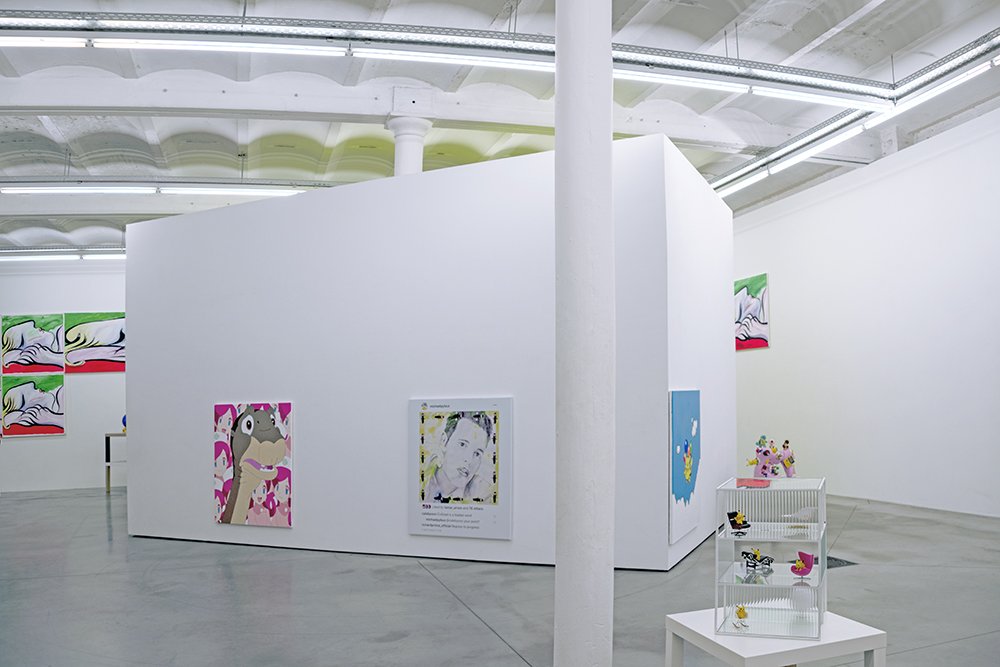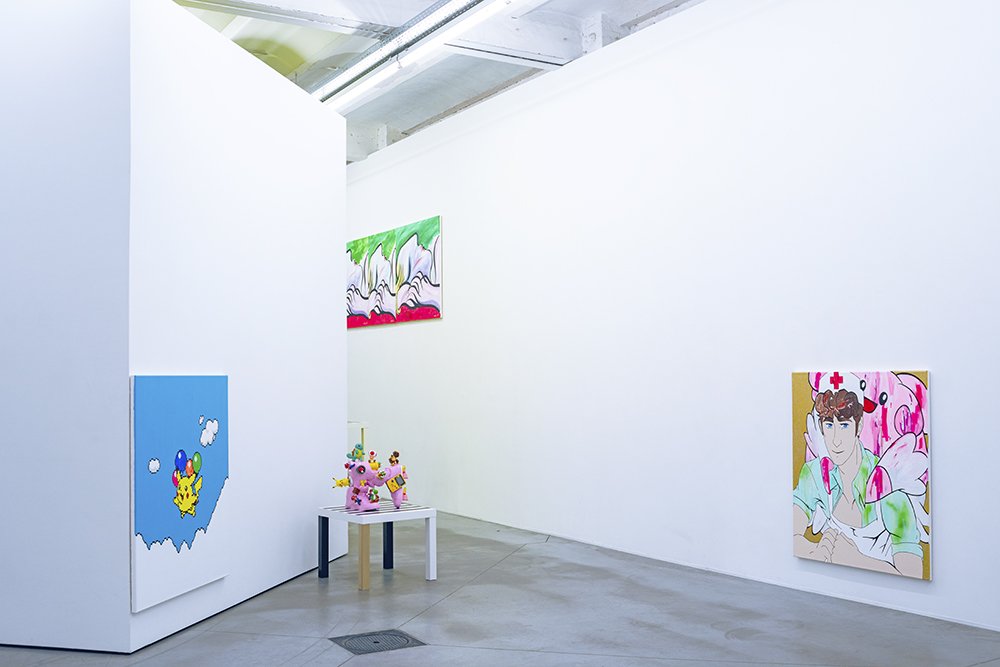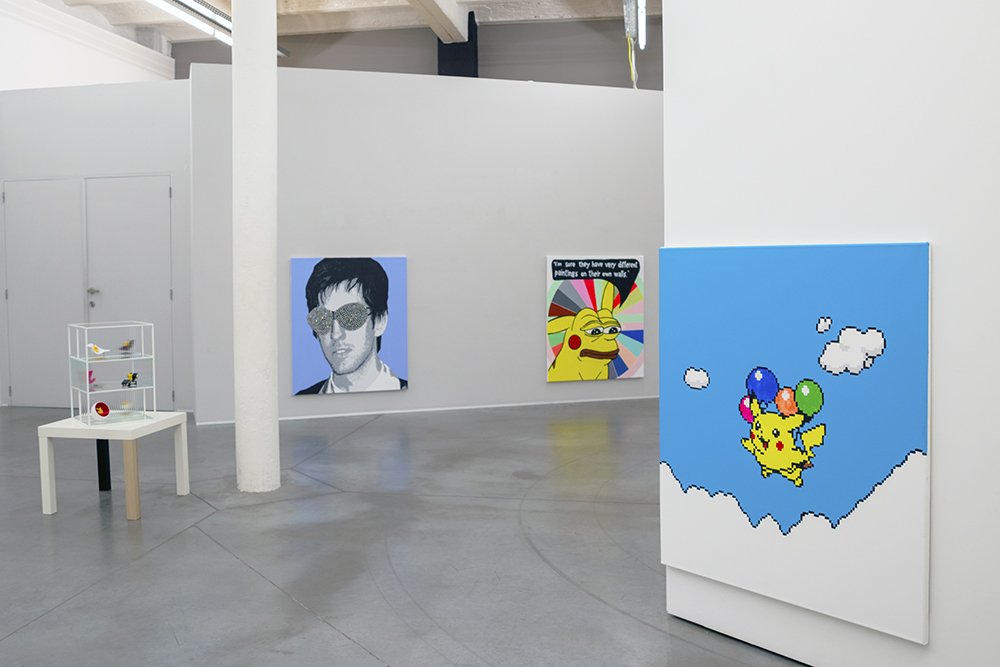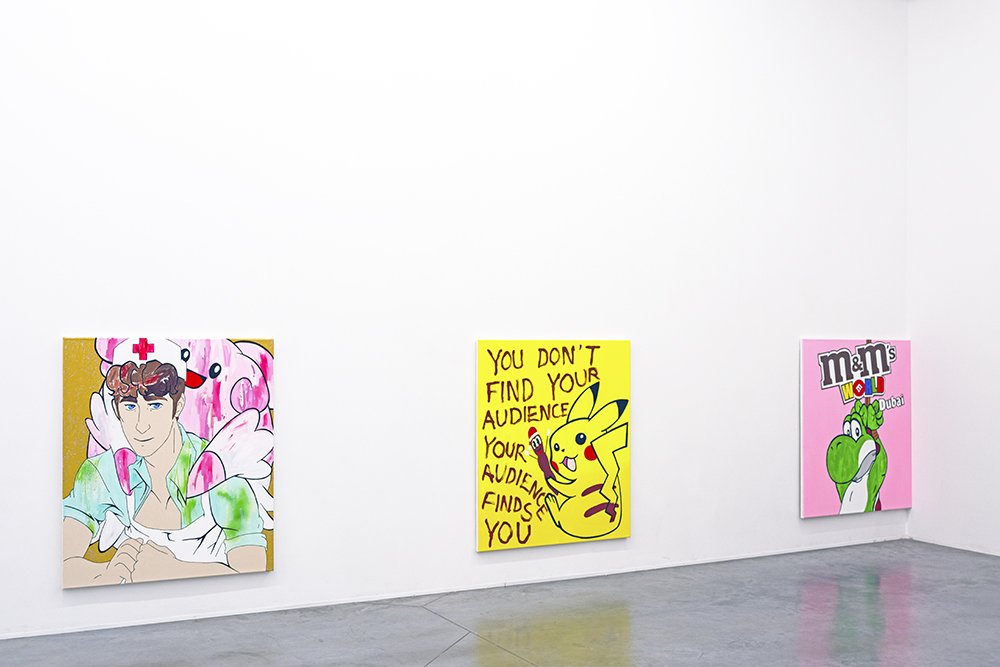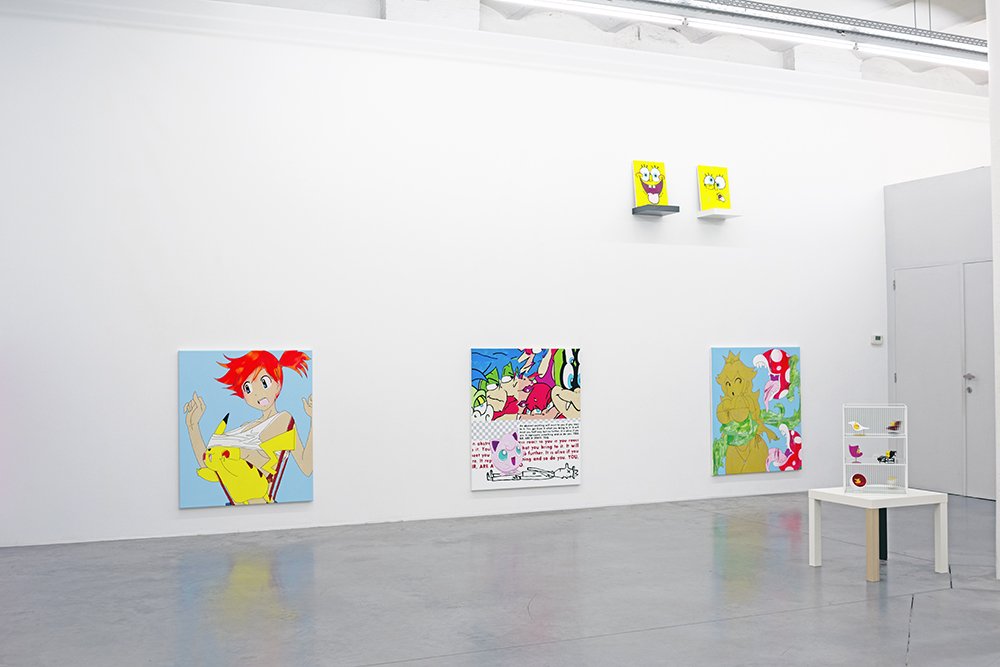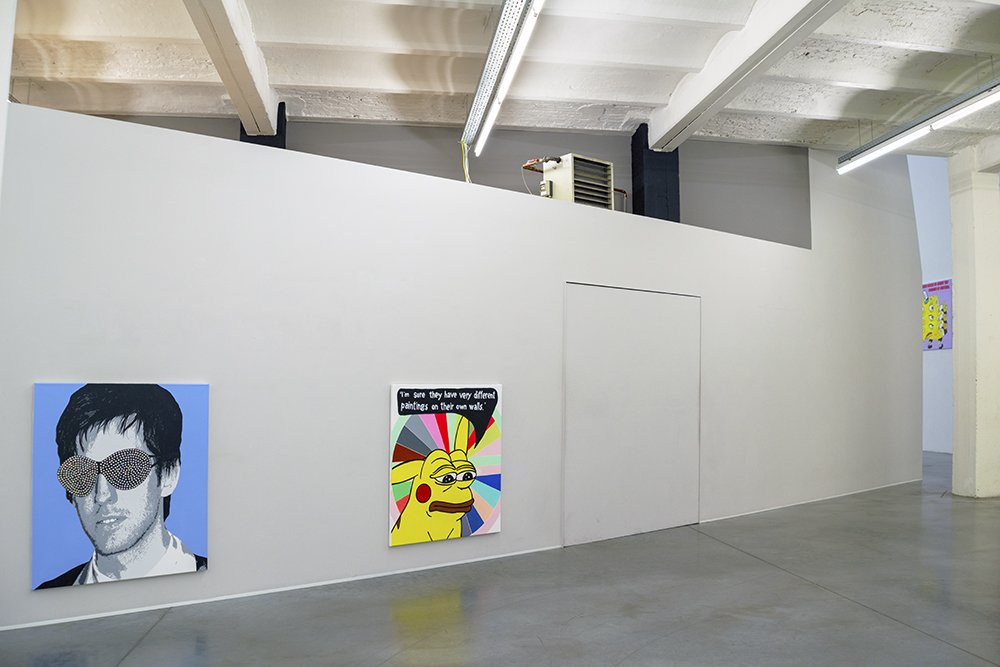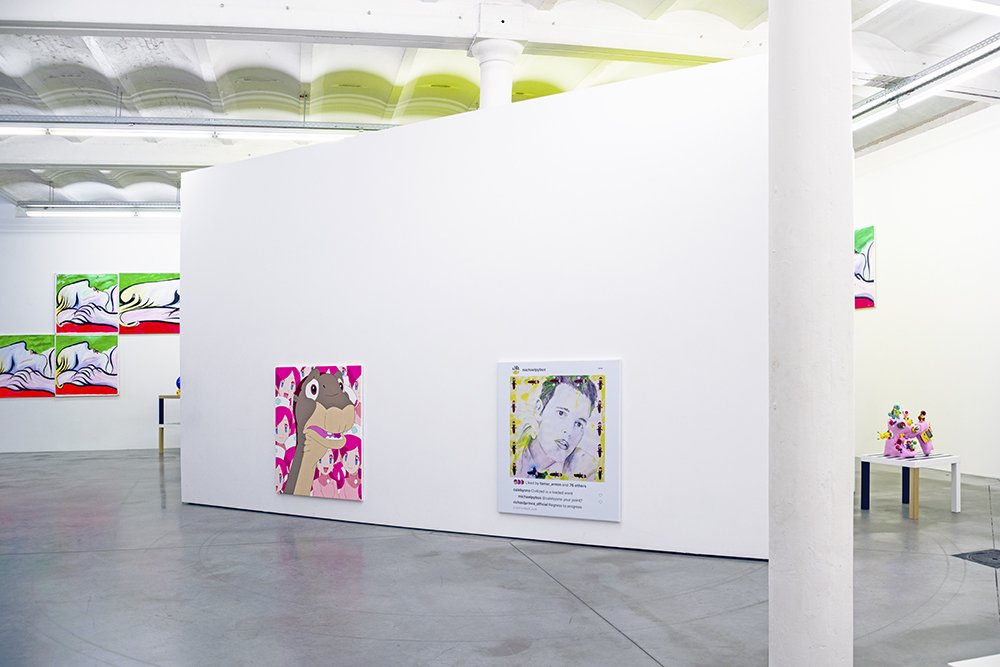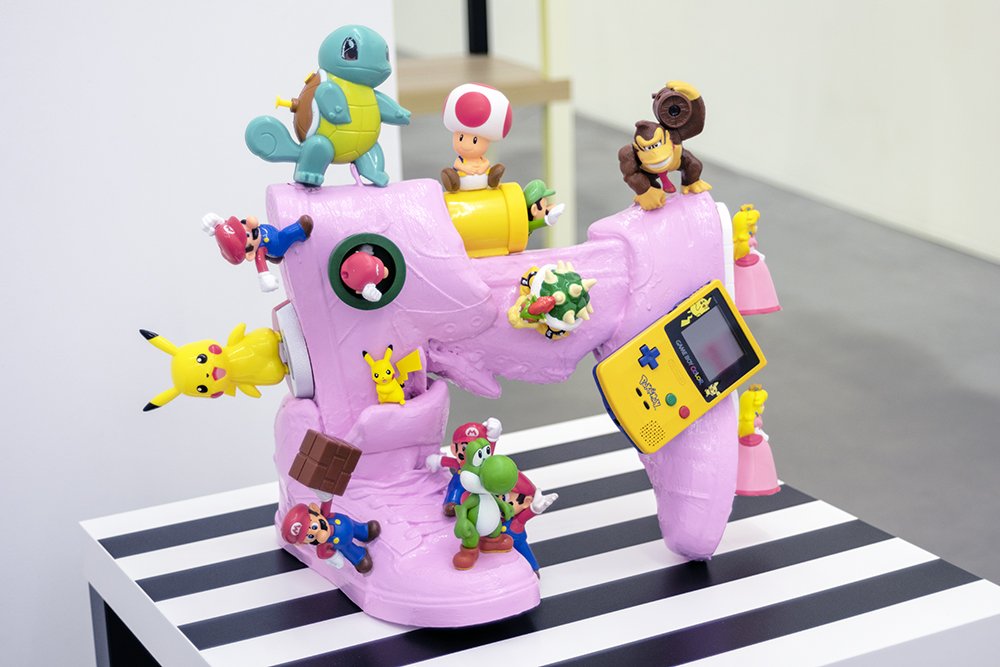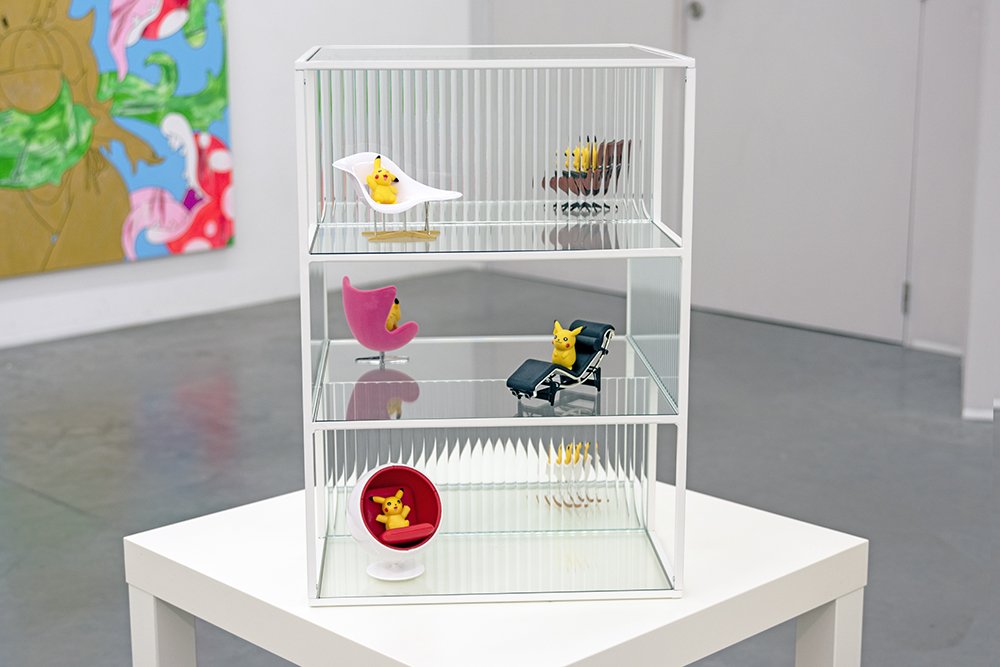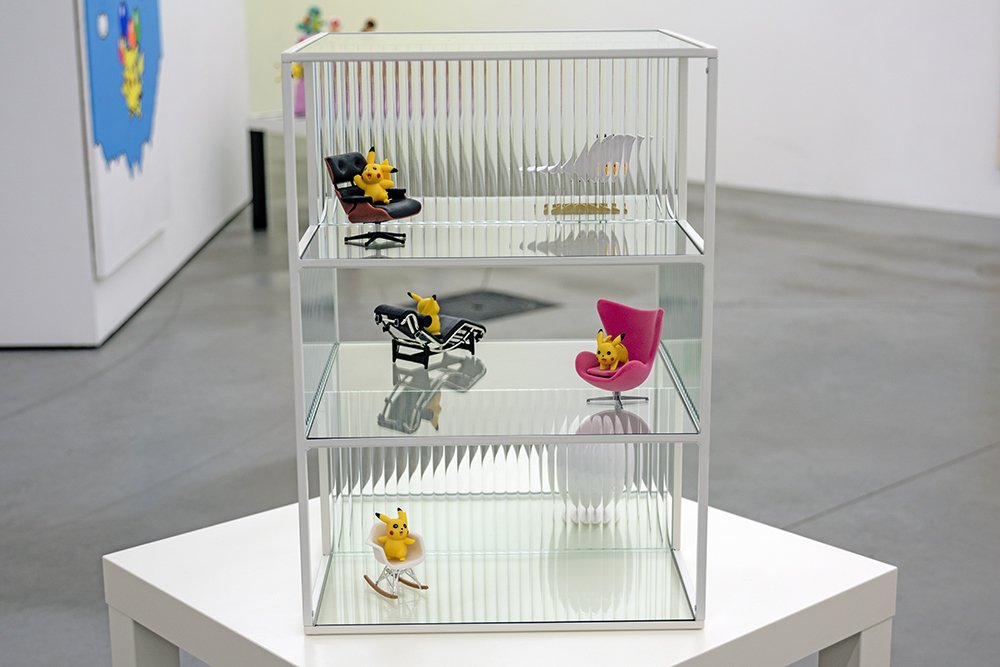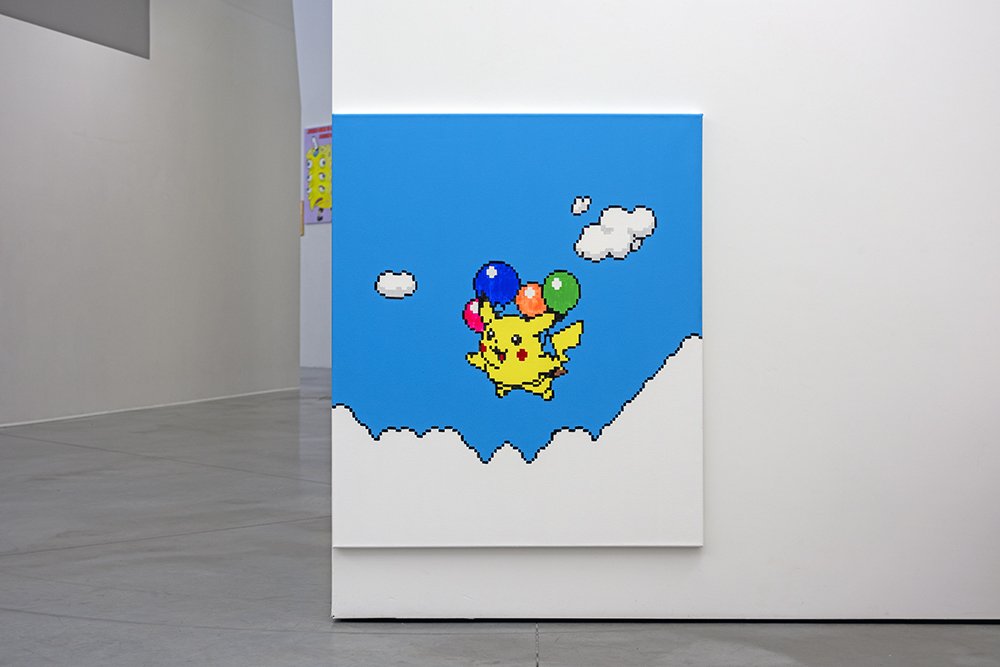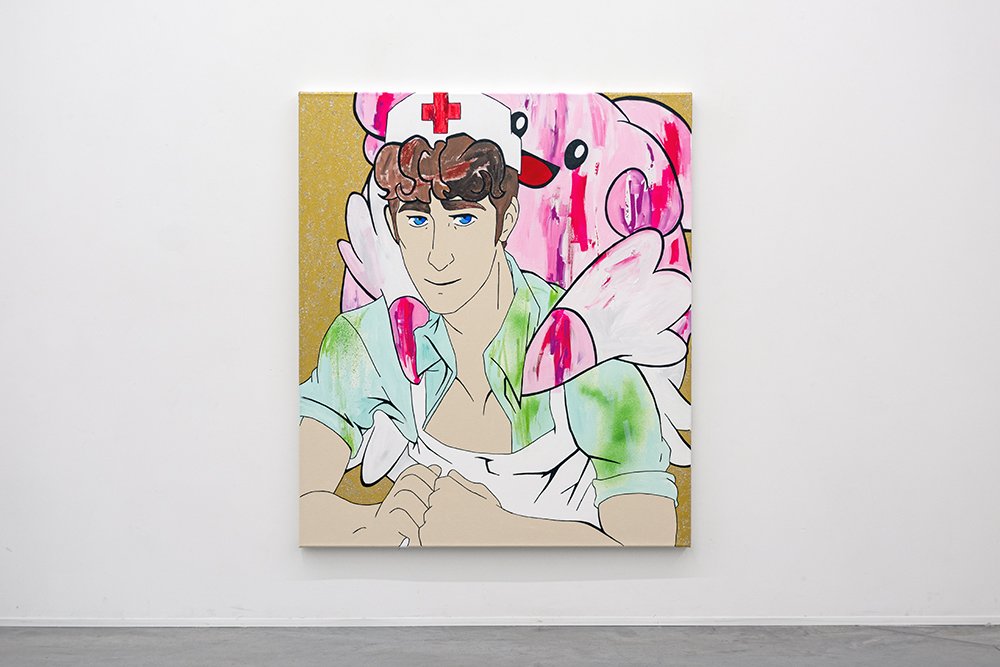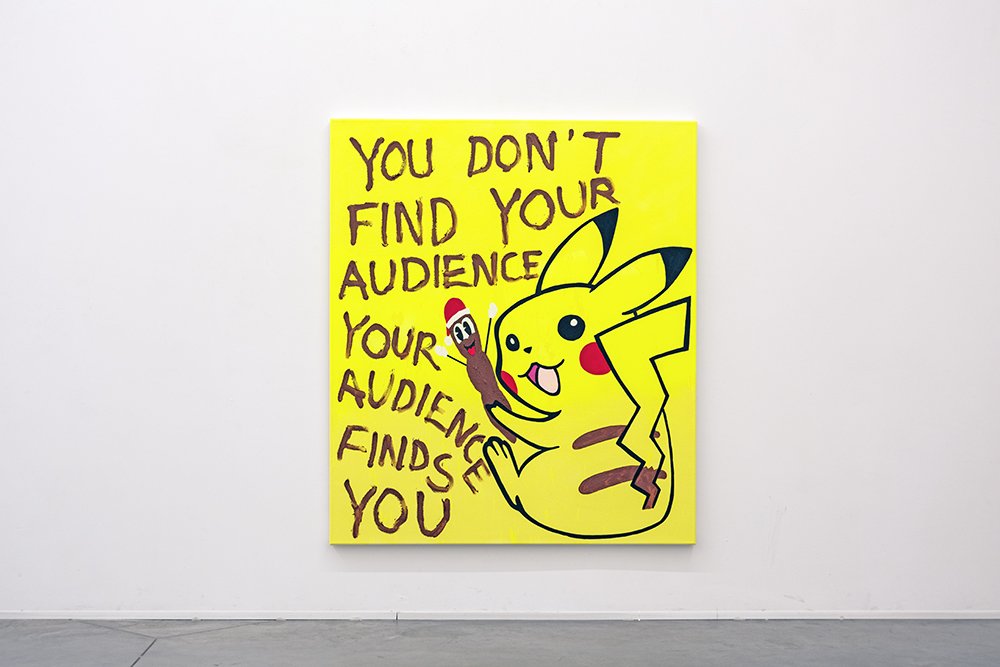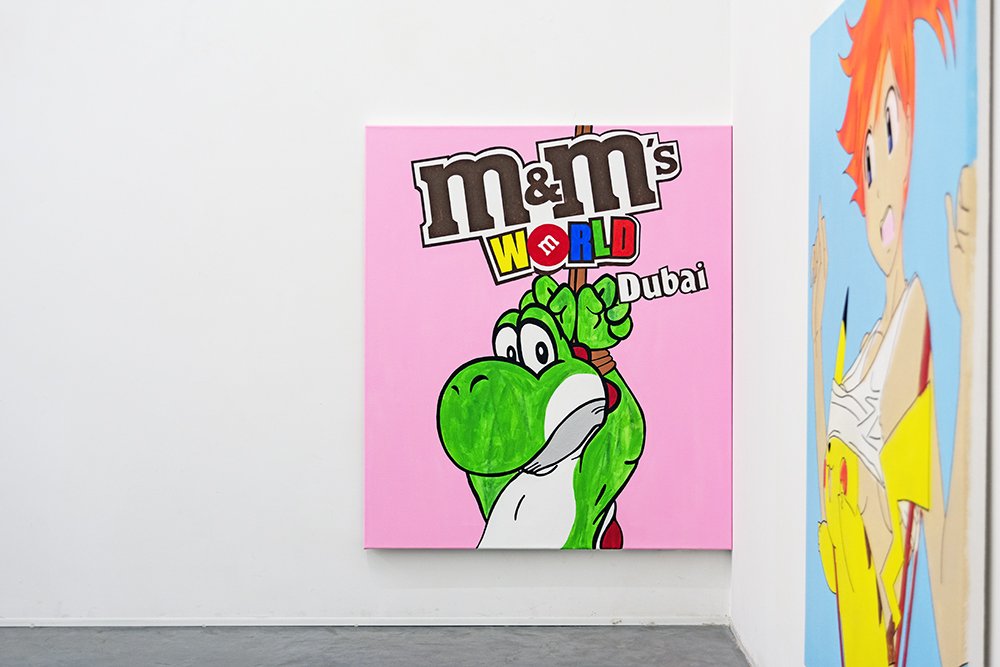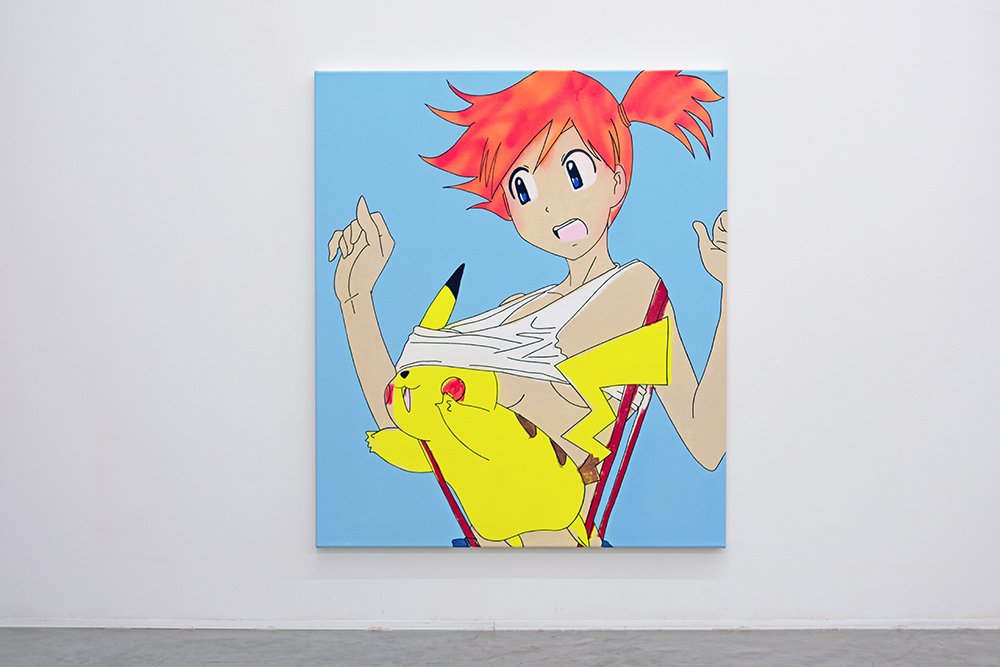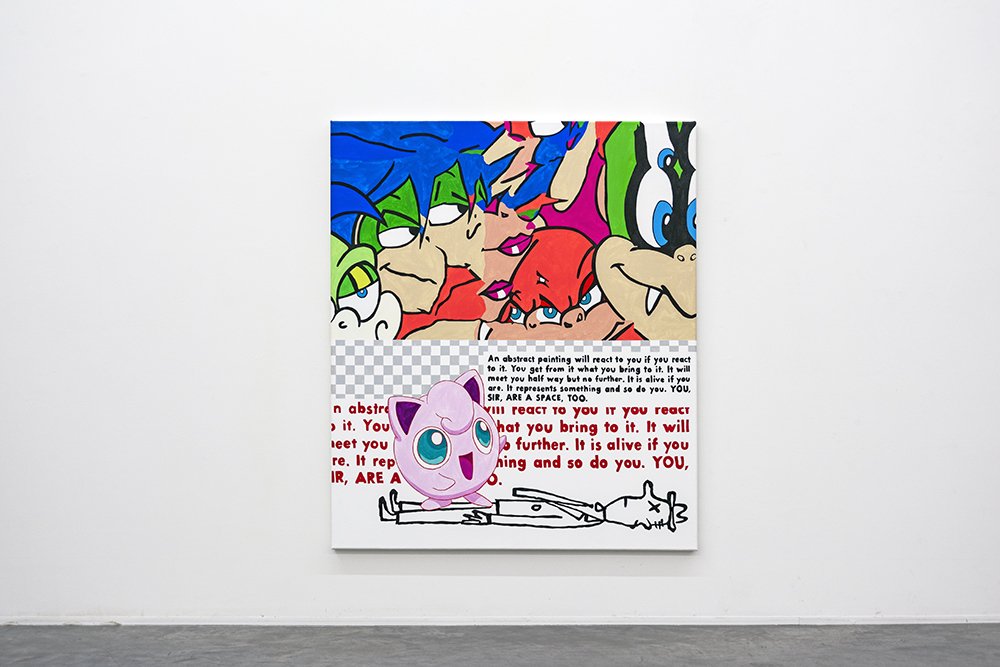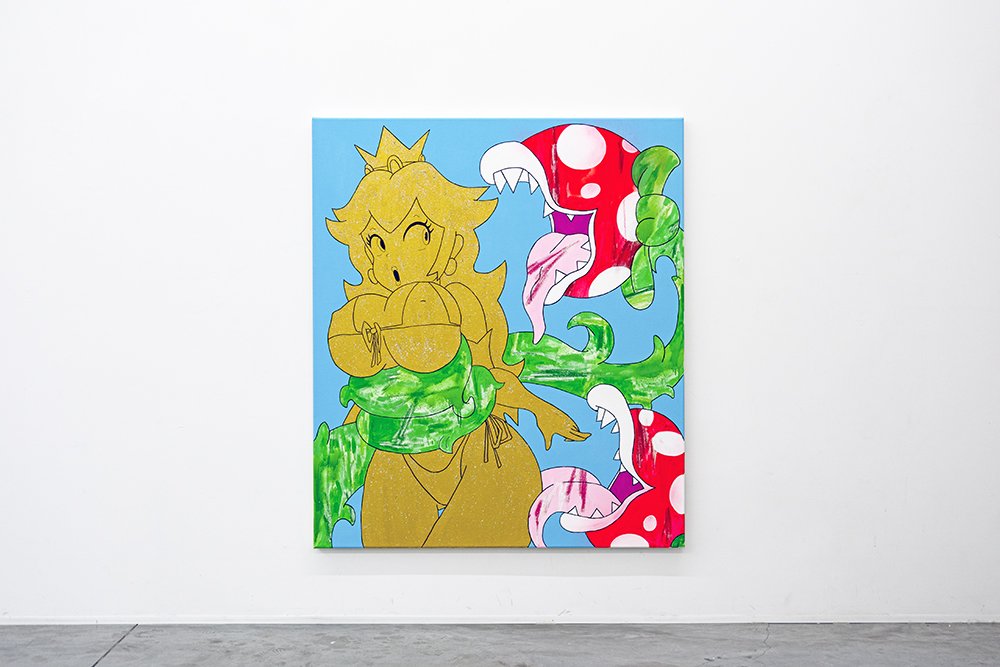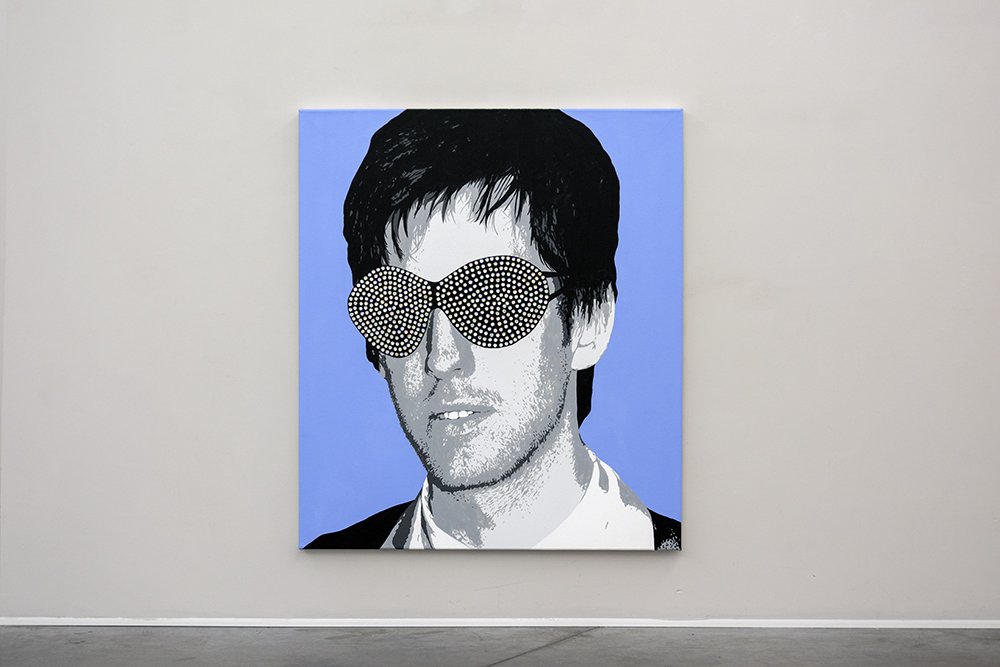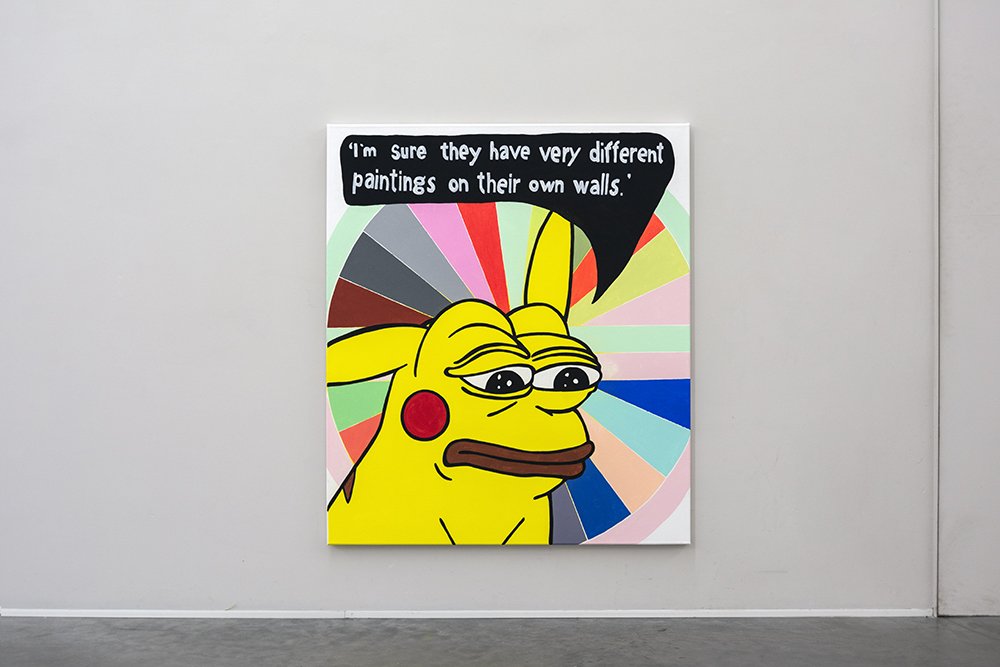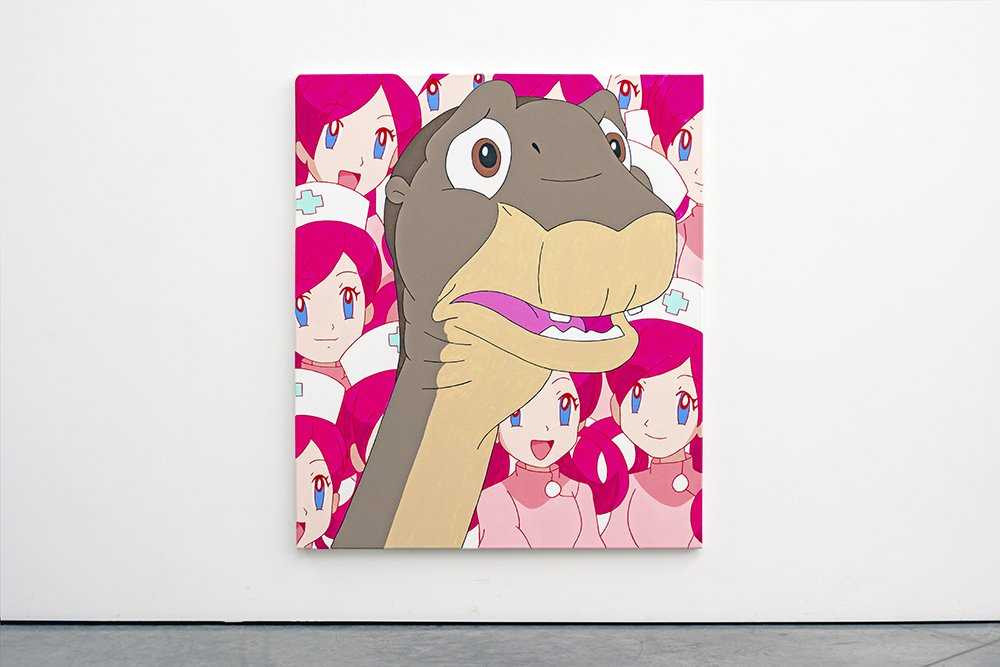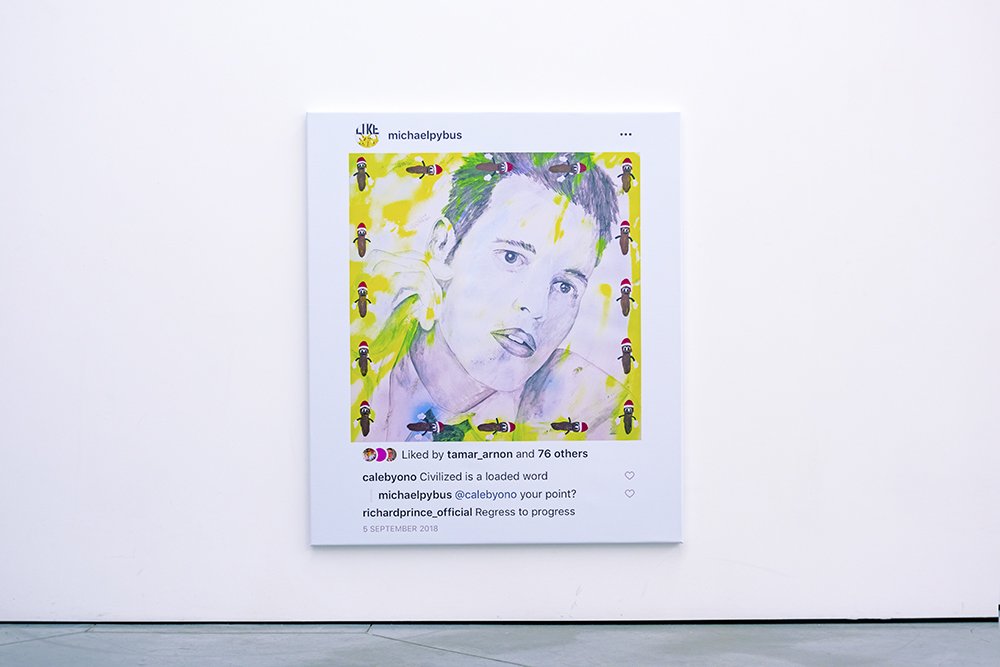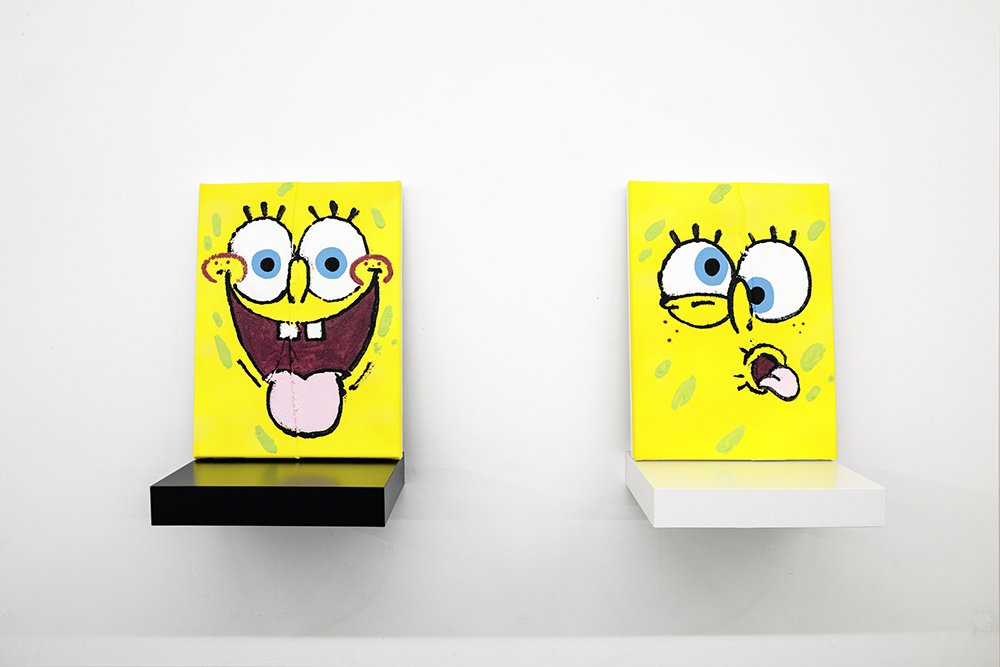REALITY APATHY
Tatjana Pieters - Ghent, Belgium
3 Feb - 24 March 2019
“Good taste is the first refuge of the non-creative. It is the last-ditch stand of the artist.” - Marshall McLuhan.
“Quotations are useful in periods of ignorance or obscurantist beliefs.” Guy Debord
Last year Bill Gross, a divorced billionaire realised the Picasso painting ‘Le Repos’ which hung above his bed was actually a fake painted by his ex-wife Sue Gross years ago. Who then in 2018 took the real Picasso to auction where it fetched more than $35 million dollars. This ‘replacement’ of reality and the subsequent Matrix like revelation that not everything that is seen is to be believed is the backdrop to Michael Pybus’ third solo show at the gallery.
Pybus’ works spawn from a cloud of their own meta manifestation. Images, characters, brands and franchises are irreverently spliced and reborn as iconoclastic memes questioning how we interpret and project values onto cultural and consumer paraphernalia. He dissects and remixes a plethora of iconography to create works which investigate and at times humorously poke at what we accept as the real, the authentic, the original. From his identity as an artist - the cliched ‘original’ - to the hierarchies and identities we apply through our choices in likes, opinions, consumer goods and aesthetics he explores the underlying scaffolding that supports how as a society and culture we come to view, value and contextualise the wealth of competing information, ideas and options we are subjected to every day.
At the dawn of the 21st Century we find ourself submerged in a transitionary period where our analogue existence is being commodified, digitised and transported into the brave new world of the silicon. The ‘old’ ways of understanding our environments are having to speedily adapt to the overwhelming array of new and unpredictable options today. Increasingly we see our lives play out in the virtual realm.
Recent unprecedented developments in the editing capabilities of software offered to the mass market on our handheld devices paired with todays pathological need to incessantly share images of life processed through filters, make it practically impossible to tell what is ‘real’ and what is altered, constructed and mutated. This barrage of augmentation has begun to erode as to what we accept and judge as reality now. As our digital networks continue to supplant our face to face interactions we become an ever growing atomised population. Technologies are transforming from being tools to companions and with this our appetite for a hyper flawless aesthetic that mirrors the gadgetry booms.
Algorithms running on super computers tailor feed us streams of images based on the excessive amounts of personal data collected from us as we absentmindedly browse, shop, tag and post. This data is continually refined to create a personal media landscape that begins to flatten out taste, aesthetics, decision making and intellectual complexity as the software continues to optimise the information and advertising to meet your every desire and prejudice. Occasionally it tries something new or makes a ‘mistake’ where your feed is infiltrated with an image or information not to your liking. It is in reference to this ‘glitch’ moment in contemporary culture that Pybus has chosen to expand his visual oeuvre into unexpected territories by introducing a series of paintings exploring new motifs questioning notions of ‘good’ taste, ‘pleasant’ content and ‘appropriate’ imagery installed amongst works which correlate with references more classically associated with Pybus.
Overwhelmed by an onslaught of information, opinions and images we are beginning to suffer from an apathy to reality. Over stimulated by data and ‘encouraged’ by the design of social media many people find themselves retreating into ever narrowing cultural spaces. We can now all curate versions of reality which suit the our personal biases and needs. As we become increasingly able to redefine what reality is then the traditional hierarchal value systems based around our collective interpretation of reality begin to crumble. If beauty is in the eye of the beholder then it also appears reality now subject to this modus operandi too.

